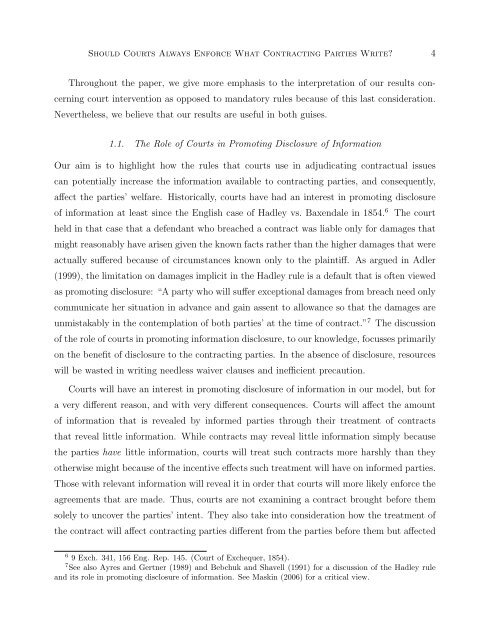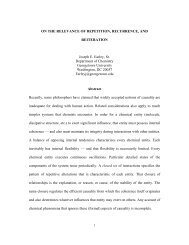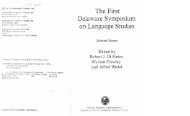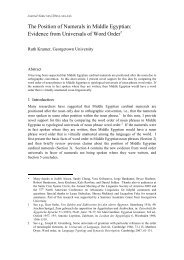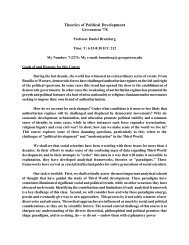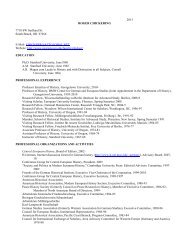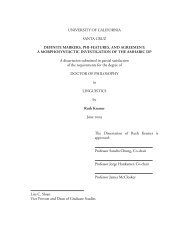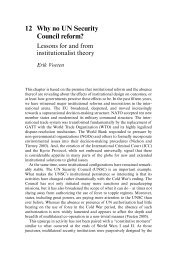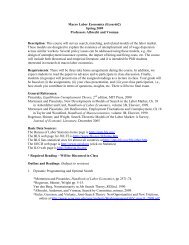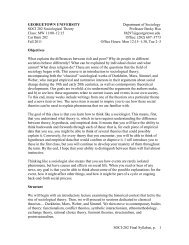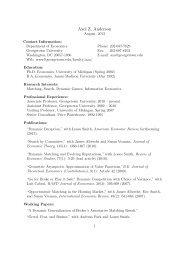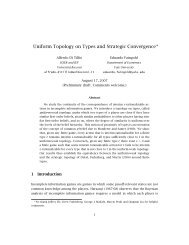PDF File - Georgetown University
PDF File - Georgetown University
PDF File - Georgetown University
Create successful ePaper yourself
Turn your PDF publications into a flip-book with our unique Google optimized e-Paper software.
Should Courts Always Enforce What Contracting Parties Write? 4Throughout the paper, we give more emphasis to the interpretation of our results concerningcourt intervention as opposed to mandatory rules because of this last consideration.Nevertheless, we believe that our results are useful in both guises.1.1. The Role of Courts in Promoting Disclosure of InformationOur aim is to highlight how the rules that courts use in adjudicating contractual issuescan potentially increase the information available to contracting parties, and consequently,affect the parties’ welfare. Historically, courts have had an interest in promoting disclosureof information at least since the English case of Hadley vs. Baxendale in 1854. 6 The courtheld in that case that a defendant who breached a contract was liable only for damages thatmight reasonably have arisen given the known facts rather than the higher damages that wereactually suffered because of circumstances known only to the plaintiff. As argued in Adler(1999), the limitation on damages implicit in the Hadley rule is a default that is often viewedas promoting disclosure: “A party who will suffer exceptional damages from breach need onlycommunicate her situation in advance and gain assent to allowance so that the damages areunmistakably in the contemplation of both parties’ at the time of contract.” 7 The discussionof the role of courts in promoting information disclosure, to our knowledge, focusses primarilyon the benefit of disclosure to the contracting parties. In the absence of disclosure, resourceswill be wasted in writing needless waiver clauses and inefficient precaution.Courts will have an interest in promoting disclosure of information in our model, but fora very different reason, and with very different consequences. Courts will affect the amountof information that is revealed by informed parties through their treatment of contractsthat reveal little information. While contracts may reveal little information simply becausethe parties have little information, courts will treat such contracts more harshly than theyotherwise might because of the incentive effects such treatment will have on informed parties.Those with relevant information will reveal it in order that courts will more likely enforce theagreements that are made. Thus, courts are not examining a contract brought before themsolely to uncover the parties’ intent. They also take into consideration how the treatment ofthe contract will affect contracting parties different from the parties before them but affected6 9 Exch. 341, 156 Eng. Rep. 145. (Court of Exchequer, 1854).7 See also Ayres and Gertner (1989) and Bebchuk and Shavell (1991) for a discussion of the Hadley ruleand its role in promoting disclosure of information. See Maskin (2006) for a critical view.


